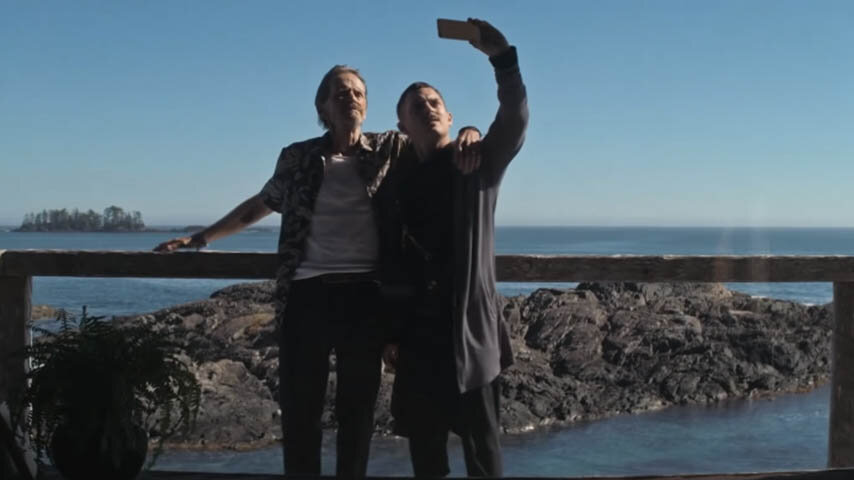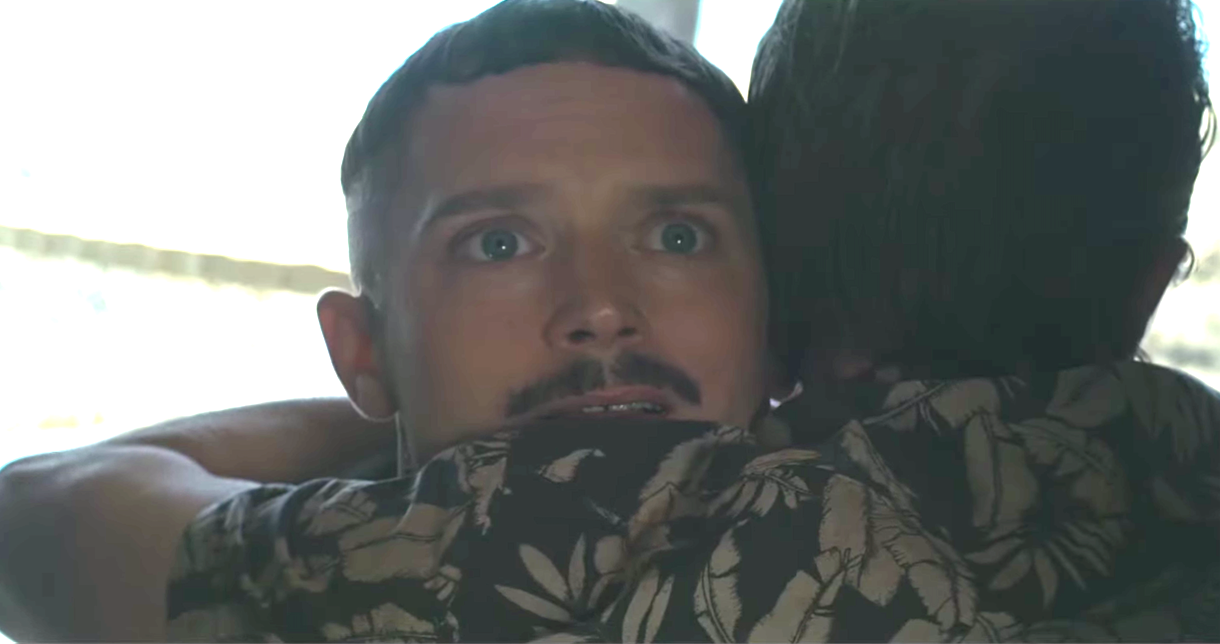Schrödinger's Cat But Make it Rocket Man: Come to Daddy Review
Spoiler Warning: This post contains details on the key story elements of Come to Daddy. The movie is amazing, available to stream, and only 96 minutes long. Go watch it first!
Early in the 2019 horror film Come to Daddy, Elijah Wood’s crustpunk protagonist Norval delivers a monologue about being close friends with Elton John that encapsulates what the movie does so well. “His real name is Reginald Kenneth Dwight,” he tells his drunken father Gordon late one night, trying to impress the absentee parent with all the success he’s made on his own as a DJ despite his lack of dad. We know Norval is lying, but how much? And then, when Gordon responds that he also knows Sir Elton, we have a standoff of lies. On the screen, the tension between competing narratives is electric and sparking with conflict, but narratively it manages the wonderful trick of all the best horror: it sends us into an existential free fall.
We spend the scene knowing that something bad is going to happen, but because we are unsure of even the base standard of what is real to these people and what is fabrication, we can’t know what we’re waiting for. We’re compelled and disoriented at the same time, suspended in anticipation and waiting for resolution, which comes when Gordon suggests calling Reginald to tell him about the amazing coincidence. It turns out neither man knows the Rocket Man, but for those sparking moments of potential energy before the resolution, anything seemed possible. That’s what the narrative free fall does – it contradicts foundational expectations that we depend on to define the reality of a story. Without the confidence of a stable reality or a reliable narrator, we are subject to the torment of the infinitely possible.
Come to Daddy is 96 minutes of sustained horror free fall. Each moment of “Let’s call Elton” resolution provides us with just enough of a ledge to cling to as we reorient and gather our bearings, before gravity shifts again and we lose our grip. It’s incredible to see such dedication to composing a sense of imbalance, watching the genre shift from isolation thriller, to psychological gothic, to Saw-esque torture porn, and beyond. About every fifteen minutes a new truth is revealed that redefines the characters, their motivations, their settings, and the allowance for human pain, dangling our expectations of whatever genre is playing in front of us to lure into another tiger trap. We follow Norval into a new set of existential rules only to fall with him into a pit, filled with even more pits.
The result is incredibly fun. Come to Daddy is packed with cathartic ultraviolence, cringe-inducing grotesquery, and uncanny creep outs all woven together by captivating photography and boldfaced performances that sell the insanity without elevating it to parody. But the film is more than a genre experiment—the free fall itself helps convey a emotional throughline that, in the end, after all the blood, shit, brains, and genital mutilation, made me say, “Awww, what a sweet movie.”
At its heart, Come to Daddy is about an abandoned son seeking out an absent father figure, and it’s not just Gordon. Two other men in the movie take on the identity of Norval’s father, if not in fact than through strange coincidence and metaphor. Even after the true roles of all the players are revealed, the title of ‘daddy’ continues to shift along with the genre and the film’s rules. The effect might be frustrating to some viewers, since it makes sympathy with the characters difficult, but sympathy isn’t what this is about. This is about the liberation of existential free fall, showing us a more brutal world that’s still worth fighting through if only to embrace the strange love of unconventional relationships in lives that, let’s face it, could be better.
Come to Daddy presents us with a failed son and three men he associates with the violence and abandonment that made him. By shifting roles through the free fall of horror, what we experience as viewers is an adrenaline injected nightmare about the role of blame in defining our relationships. After all, none of the daddies deserve to get out of the film alive, but because one transgressed before the others, and cause all of this to happen, we have to hold on to that thread of judgement as our anchor. We see the men, and from them crown the daddy who dragged us into this terrible situation.


